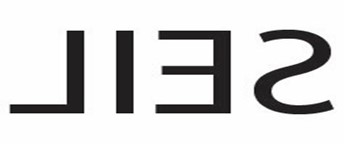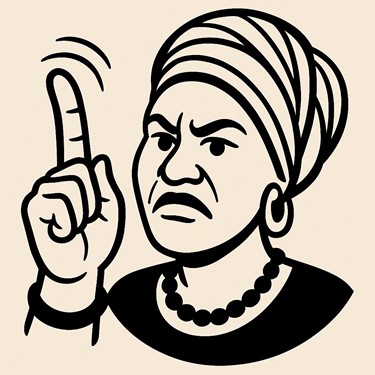A lie is an intentional distortion or misrepresentation of the truth, crafted to mislead, obscure, or manipulate. It can be as simple as a harmless fabrication told to spare feelings, or as complex as a web of deceit to protect secrets or achieve personal gain. At its core, a lie is shaped by the speaker’s knowledge that what they’re saying is not in line with reality. Statements spoken in ignorance or error without intent to deceive are merely mistakes. A lie is characterized by intention. Deceit, fabrication, fibbing and evasiveness are foundation of lies. Some synonyms for “lies” are falsehood, untruth, falsification, etc.
We lie for several reasons. It could be for self-protection, to avoid punishment, blame, or shame. Or for self-promotion, to gain advantage, status, or respect. It could be for protection of other people, shielding someone from harmful truth. Other lies are told for manipulation and control for personal benefit. Sometimes lies are justified as a social convenience, to smooth interactions, avoid conflict or uphold social norms.
Lies can have a cultural and general acceptance when they are part of tradition or professional norms (e.g. sales exaggerations in trade or political promises). It can be a delicate situation being in a community that treats lying as an art of social astuteness rather than moral failing. In Buganda we initiate conversations by asking whether there are any lies a visitor may have to tell (mutulimba ki eyo?). The uninitiated may take it literally and start lying whereas it is a way of prompting the visitor to talk and provide information on where he/she is coming from.
My innermost feeling is that a lie is a lie, but society tells us that lies have varying forms. That there are direct lies which are straightforward false statements; then there are half-truths which are a blend of truth and falsehood to mislead. There are also lies of omission, withholding critical information to distort understanding; and then white lies, considered minor or harmless, often used to spare feelings. Exaggerations are lies inflating reality, sometimes to manipulate observation and denials, refusing truth outright, often in self-defence or self-preservation. We see a lot of this among global leaders near and far.
I do not subscribe to an intention justifying deception or judging a lie by its outcomes. According to the standardising ethical theory that the morality of an action should be based on whether that action itself is right or wrong, under a series of rules and principles, rather than based on the consequences of the action, a lie is wrong regardless of intention.

Lies are often sanitized, meaning they are made to appear acceptable, harmless, or even noble. This occurs through euphemisms such as “White lie” for a lie deemed harmless and labels such as “Strategic misrepresentation” in politics or business to justify deception or “Diplomatic language” to cover blatant falsehood with courteousness. Lies may slip through conversation as omissions, exaggerations, or half-truths. Lies are also sanitized by rationalization when they are framed as necessary for the greater good or claiming need to protect feelings or maintaining peace etc.
Consequences of lies, sanitized or nor, include erosion of trust in relationships, personal or institutional; self-propagation as further lies are needed to cover initial lies. When a lie is discovered, it causes more damage than truth might have caused. By distorting reality, lies obstruct judicious decisions.
A lie may be seen as “acceptable” if it prevents greater harm or protects vulnerable parties. For example, hiding the truth from a child for his/her protection may be considered defensible but not without its ethical complexity. White lies, used to spare feelings, can be avoided by not touching on the subject likely to be offensive. For example, instead of complimenting a bad meal one could simply thank the host for the meal without touching on its palatability. You do not have to tell me that I look well when it is obvious I am haggard and sick. Just saying “Good to see you” is sufficient.
While intentions matter, they do not justify lying. The greatest danger of lies is erosion of trust which is the bedrock of relationships personal or otherwise. Intention can explain a lie, but it does not always excuse it.
Accepting lies as a normal way of life affects personal integrity and social cohesion. The more one lies, the more one’s moral extent adjusts to accommodate dishonesty. It creates intellectual discord and weakens self-respect. It requires additional lies to maintain the first, leading to entanglement. The normalization of lies undermines both the individual’s integrity and the fabric of society. It cheapens truth, devalues trust, and makes meaningful connection harder.
All religions teach that lying is a sin. The religious founding Fathers, in Christianity, recognized the temptation to lie and the difficulty of always adhering to the truth. St. Jerome is reported to have written that, “It is hard for the human tongue not to lie, and it needs the grace of God to keep it from lying”. In other words, one should accept one’s frailty to lying but try to overcome it. St Augustine teaches that lying is always morally wrong although there is a difference between lying and being a liar. A person may tell a lie unwittingly, but a liar loves to lie. In other words, every liar tells a lie to deceive although not everyone who says something false intends to deceive. Augustine argues that lying is always morally wrong, regardless of the circumstances.
Islam defines lying as deliberately expressing false information whether as a joke or seriously. It is classified among the major sins. The Quran warns against lying, emphasizing that truthfulness is a fundamental characteristic of a believer. While there are exceptions for white lies, the general principle in Islam is to uphold truthfulness.
Do not take every quotation you read on its face value. The phrase “Lies, damned lies, and statistics” is often used to highlight the persuasive power of statistics in misleading arguments, suggesting that statistics can be manipulated to support false claims. In my blog on Statistics, I objected to this characterization of my profession pointing out that Statistics is a tool for unravelling information presented by data. Like all tools, it can be misused intentionally or through ignorance. That does not make the tool inappropriate. Some quotations can be lies.
I am guided into my truthfulness by a simple rule of “doing to others as you would like them to do to you”. As a Rotarian, I subscribe to one of Rotary’s guiding principles The Four-Way Test promoting integrity with the first test being whether what one does or says is the truth. I despise anyone who lies to me personally or as a community member. When I see my society seeped into a quagmire of lies and thieving sanitized as development support, I weep. Thieves, at any level, are liars. When you lie, for whatever reason, you start rotting morally and in the long run people will start treating you as they treat a waste dump because of the stench.
If I were to say: “I never tell a truth” What would be your conclusion? If the assertion is true, then I am lying and am telling the truth. If it is a lie, then I am lying and I am telling the truth. Think about it.


Comments (6)
Peace Lwanga
Spot on
Rtn Stephen
Thanks
Dorcas Lwanga
“Then you will know the truth, and the truth will set you free.””
John 8:32 NIV
https://bible.com/bible/111/jhn.8.32.NIV
Robert Yiga
Wow
Robert Yiga
Am fascinated by this Blog
Rtn Stephen
Thanks, Rtn Yiga. Read, or listen to the rest and give me feedback.